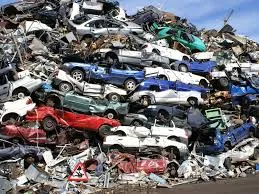
10 月 . 16, 2024 13:00 Back to list
The Importance of Iron Recycling Plants in Sustainable Industry
Iron is one of the most widely used metals in the world, crucial for countless applications ranging from construction to manufacturing. As global demand for iron continues to rise, it is imperative to focus on sustainable practices to ensure the responsible management of this resource. One effective solution lies in the establishment and operation of iron recycling plants, which offer both environmental and economic benefits.
Iron recycling plants are facilities specifically designed to collect, process, and recycle scrap iron. This process begins with sourcing scrap iron from various avenues, including demolition sites, manufacturing waste, and old vehicles. In the recycling plant, this scrap is sorted, cleaned, and transformed into raw materials that can be used in the production of new iron products. This not only helps to conserve natural resources but also reduces the energy consumption associated with traditional iron mining and production.
One of the primary advantages of iron recycling is the significant reduction in energy usage. The production of new iron from raw ore is an energy-intensive process, often requiring substantial fossil fuel consumption. In contrast, recycling scrap iron requires much less energy—up to 70% less, in fact. This reduction in energy use directly translates to lower greenhouse gas emissions, making recycling a more environmentally friendly option. As the world grapples with climate change, initiatives like iron recycling become even more critical in our collective effort to reduce carbon footprints.

Moreover, recycling iron contributes to managing waste more effectively. Scrap metal is one of the largest components of industrial waste, and without proper recycling facilities, this material would likely end up in landfills, contributing to environmental degradation. Iron recycling plants play a vital role in diverting waste away from landfills, thus promoting a circular economy where materials are continually reused and repurposed rather than discarded.
The economic benefits of iron recycling are equally noteworthy. Establishing and operating iron recycling plants creates jobs and stimulates local economies. Skilled workers are needed to handle various tasks, from sorting and processing to logistics and management. Furthermore, the recycling industry can provide raw materials at a lower cost compared to virgin resources, making it an attractive option for manufacturers seeking to minimize expenses while maintaining sustainability.
In addition to the environmental and economic advantages, iron recycling plants can foster community engagement and awareness about sustainability. Many facilities offer educational programs and outreach initiatives that teach the public about the importance of recycling and responsible consumption. By promoting innovative practices and encouraging community participation, these plants can aid in creating a culture of sustainability that extends beyond their immediate operations.
In conclusion, iron recycling plants are essential in promoting sustainable industrial practices. They offer significant environmental benefits by reducing energy consumption and waste, while also contributing positively to the economy through job creation and cost-effective raw material supply. As we continue to develop our industries in an increasingly resource-conscious world, the role of iron recycling will only become more vital. Embracing and supporting these plants is a step toward a more sustainable future for all.
Latest news
Unveiling the Power of Eddy Current Separator
NewsSep.25,2024
Transform Your Home Recyclin:home metal shredder
NewsSep.25,2024
The Future of Waste Management with Recycling Line Picker
NewsSep.25,2024
The Benefits of a Metal Recycling Plant
NewsSep.25,2024
Revolutionize Material Separation with Onwang Technology
NewsSep.25,2024
Innovative Waste Management: Unveiling the MSW Sorting Plant
NewsSep.25,2024